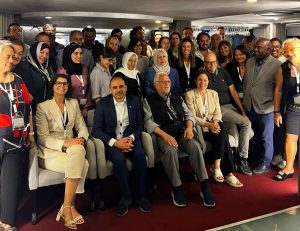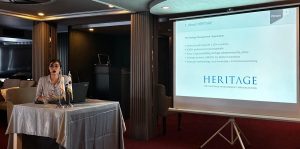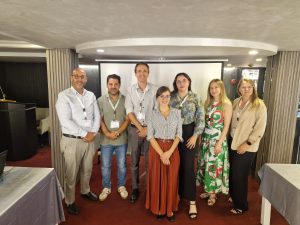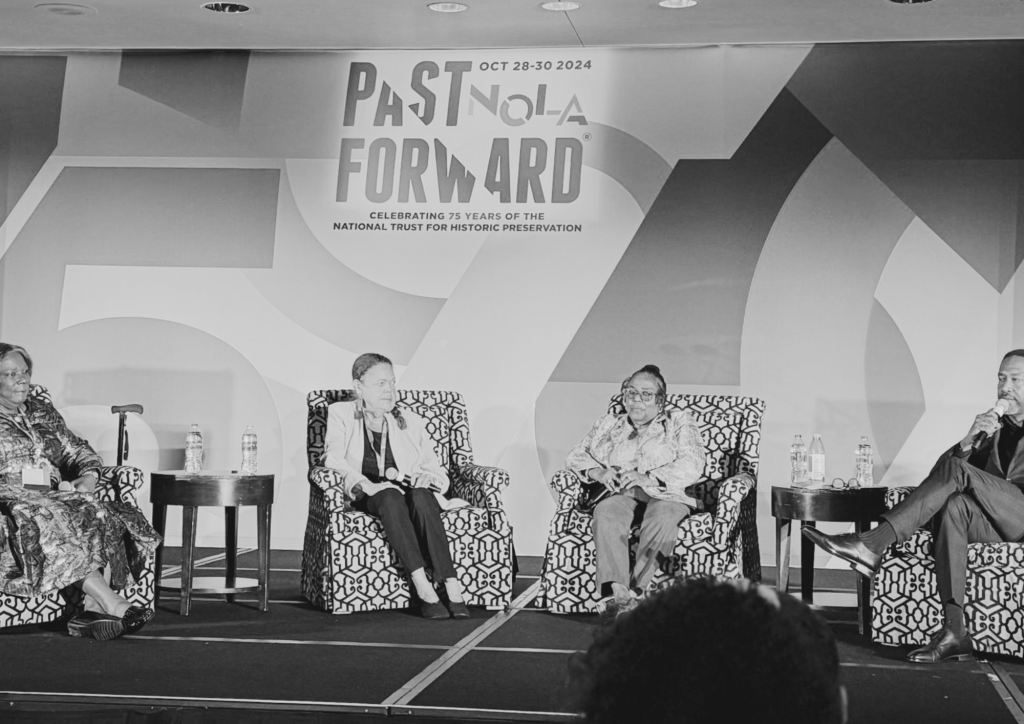: Conference
HERITΛGE at the Conference on Sustainable Tourism
From 8 to 11 October 2025, The Heritage Management Organization (HERITΛGE) participated in the 7th Cultural Sustainable Tourism (CST) Conference, hosted in the historic cities of Aswan and Luxor, Egypt. The event brought together experts from across the globe to explore how cultural tourism can foster authentic exchanges, strengthen communities, and advance sustainable development through heritage.
Representing HERITΛGE, Denise Navarro Becerra, Program Manager for M Gambia, presented the paper:“Strengthening Local Capacities for Cultural Tourism Development: The HerMaP Gambia Initiative (2020–2025)”.
The presentation highlighted how the EU-funded initiative supported peer-led capacity building, institutional partnerships, and community-based tourism development in The Gambia demonstrating HERITΛGE’s methodology for building locally rooted, sustainable heritage systems.
The CST 2025 program addressed some of the most pressing challenges in heritage and tourism today. Sessions were organized under themes such as:
- Bridging Past and Present: Valuation and Interpretation of Tangible and Intangible Heritage
- Community, Culture, and Local Engagement in Tourism
- From Stones to Stories: Negotiating Tangible and Intangible Heritage Across Continents
- Cultural Heritage, Identity & Interpretation
Presenters included researchers and practitioners from Italy, Portugal, Spain, Morocco, Egypt, Lebanon, Taiwan, the Philippines, Mexico, Georgia, and beyond, reflecting the global scope of the dialogue and the relevance of cultural tourism across diverse contexts.
While in Egypt, the HERITΛGE team also had the pleasure of reconnecting with Dr. Hassan Refaat, HERITΛGE fellow and grant awardee, whose ongoing work continues to contribute meaningfully to sustainable heritage development in the region.
HERITΛGE received strong interest from institutions and professionals seeking future collaboration, particularly on integrating heritage training, community engagement, and tourism development. The conference provided a valuable opportunity to share lessons from the HerMaP Gambia initiative and reaffirm HERITΛGE’s commitment to co-creating sustainable, community-led heritage programs in Africa and globally.
Summer Field School in Community Engagement for Cultural Heritage
This summer, HERITΛGE’s 11th Engaging Communities in Cultural Heritage Summer School brought together students, researchers and practitioners from around the world for two weeks of learning, discovery and collaboration. Through a range of activities, participants explored how communities engage with cultural heritage through a mix of academic sessions, practical fieldwork and creative activities.
The first week of the programme involved online teaching where participants were introduced to the ideas of engaging communities. Then, from June 23rd to July 6th, participants travelled to the Island of Paros where they were able to further explore what they had learned. Here is a look back at how it went.
Day 1: Mapping First Impressions
The in-person programme began in Paroikia, the island’s capital. After an introductory session, participants stepped out to create personal maps of the area using their senses as guides. In a group discussion, they shared first impressions and identified key questions to explore in the days ahead.
In the evening, the group travelled to Aliki to join the Klidonas midsummer festival. Music, dancing and lively conversation provided a first opportunity to connect with the local community and one another.
Day 2: Sensing the Island
Participants deepened their exploration by tuning into the sensory dimensions of Paroikia, focusing on its sounds, smells, textures and colours. Later, they collaborated on a collective mental map that reflected both individual and shared perspectives.
The day ended with a welcome dinner by the coast, accompanied by traditional music and conversation.
Day 3: Observation and Oral History Skills
Having become more familiar with the environment, participants focused on specific locations of interest, blending observation with active participation.
A hands on session introduced tools and techniques for conducting oral history interviews, with a focus on audio and video recording.
Day 4: Learning from the Locals
The group met with Spyros Mitrogiannis, a leading figure in local cultural work, who guided a visit to the Institute for Archaeology of Paros and the Cyclades. He shared insights into the cultural, environmental and political landscape of the island.
In the afternoon, participants examined themes such as ancient quarrying, fishing traditions and contemporary religious practices, laying the groundwork for their field research.
Day 5: Stories from Afar and At Home
Two guest speakers enriched the day’s programme. In the morning, Traci Kawai presented the Fisher Child project from Cape Town, a VR and AR exploration of sea, memory and healing.
In the evening, Katerina Konstantinou shared her research on folklore and local material culture, examining how heirlooms and souvenirs shape participatory documentation.
Between sessions, teams continued developing interview guides in preparation for community engagement.
Day 7: Walking the Paths of Heritage
In northern Paros, participants met Malatestas, President of Paros Park, who spoke about the challenges of heritage management and local involvement. A walk through the park’s trails highlighted the close ties between landscape and culture.
The day concluded with a beautiful sunset watched from the beach.
Day 8: Festivals and Tourism
The day focused on festivals as expressions of identity. Vicky Papadimitriou shared her experience with local, regional and national events, while Tim Healing offered case studies on community tourism and sustainability, prompting thoughtful discussion on responsible development.
Participants also used the day to refine their ongoing projects.
Day 9: Stories Set in Stone
The morning opened with discussions about interviews already carried out, ranging from fishing traditions to quarrying and religious offerings.
In the evening, Spyros Mitrogiannis led a visit to the Ancient Marble Quarries at Marathi, offering historical context and highlighting present day challenges around preservation.
Day 10: Visual Identity and Storytelling
Participants continued reviewing interview materials and shaping their group projects. In the afternoon, Irene Biza led a session on design and identity, exploring how visuals influence perceptions of place.
The day concluded with a screening of Yorgos of Kedros, a documentary that sparked reflection on storytelling and self representation.
Days 11 and 12: Final Preparations and Reflections
As the public presentations approached, teams worked to analyse ethnographic data and create podcasts, videos and visual materials.
Participants also attended a lecture by visual artist Natassa Biza, who offered new insights into ancient spolia around Paroikia, challenging conventional perceptions of historical remnants.
The final day was dedicated to collaboration, as teams prepared their presentations to the local communities and reflected on their shared journey.
Online Conference and Presentation
The field school concluded with the Online Engaging Communities Conference on Sunday, July 6th, where participants shared their insights and creative outputs with an international audience. This event was exclusively available to our trainees and alumni and included presentations and insights from the Summer Field School Alumni who shared their current research projects, sparking an engaging session enriched with thoughtful discussions and commentary.
Following the conclusion of the Conference, the trainees organized a presentation of their work that was open to the public and was widely attended. The presentation took place in the Dimitrokopoulos Building in Paroikia, with the kind support of the Municipality of Paros. During this second part of the evening, participants had the opportunity to share insights from our two weeks of fieldwork with attendees interested in their work.
“After days filled with collective challenges and individual discoveries, often marked by the initial confusion that is so characteristic of ethnographic research, this final presentation felt like both a validation of our efforts and an affirmation of our growing professional identities,” reflects trainee Claudia Valisano. “Beyond that, the event also had the potential to spark fresh interest among local residents in the island they call home, renewing awareness both for them and for us. Once all speeches were delivered and questions from the audience were addressed, guests were invited to enjoy food and drinks on the building’s beautiful terrace.”
You can find out more about our Summer School programmes and future dates here.
HERITΛGE at PastForward 2024
The Heritage Management Organization (HERITΛGE) was honored to be one of the sponsors of the PastForward 2024 Conference, organized by the National Trust for Historic Preservation in the historic city of New Orleans, Louisiana, from October 28 to 30.
This year’s conference held special significance as it marked the 75th anniversary of the National Trust for Historic Preservation. It showcased the evolving field of preservation, set against the backdrop of New Orleans—a city renowned for its vibrant culture, rich history, and resilience.
Themed around the interconnected nature of heritage preservation, PastForward 2024 tackled three pressing challenges facing the United States today:
- Creating Climate Resilience Through Historic Preservation
- Ensuring a Representative Preservation Movement
- Encouraging Historic Preservation-Based Community Development
These themes highlighted the potential of heritage preservation as a tool for addressing global issues, from environmental sustainability to social justice and urban revitalization.
HERITΛGE at the Conference
Representing HERITΛGE at the conference were Donna Wilson and Richard Brown, who engaged with heritage professionals from across the United States and beyond. Stationed at the organization’s booth in the exhibition salon, they introduced attendees to HERITΛGE’s impactful programs, including its efforts to train heritage professionals worldwide in managing cultural assets and fostering sustainable development.
The conference provided an excellent platform to share HERITΛGE’s expertise in areas such as:
- Training communities to safeguard heritage assets against climate threats.
- Promoting inclusive practices that ensure underrepresented groups are part of preservation narratives.
- Supporting grassroots heritage projects through microgrants and capacity-building programs.
As we celebrate this milestone anniversary with the National Trust for Historic Preservation, HERITΛGE remains committed to advancing the interconnected practice of heritage preservation. We are proud to have been part of such an inspiring event and look forward to continuing our collaboration with heritage professionals in the United States and around the world.
Monuments in Ruins, Ruins as Monument Evaluation, Protection, Enhancement & Management
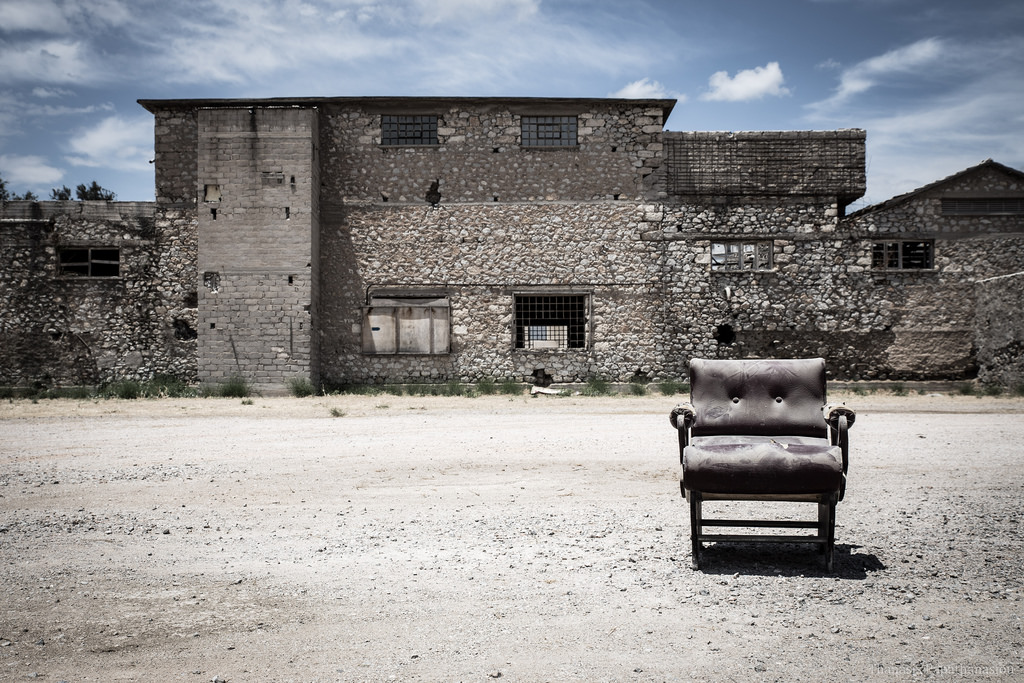
Elefsina, Old Oil Mill | by Th.Papathanasiou
Ruins, archaeological and historical, present a special category of monuments that ensue as a result of natural wear and tear, abrupt natural catastrophes, use, abandonment or intentional destruction. (more…)
Histories, Spaces and Heritages at the transition from the Ottoman Empire to the Greek state
Written by Dr. Aris Anagnostopoulos
On the 15th of September 2015, we organized a day conference with the French School of Athens and SonorCities. This conference was intended as a launch event of the ongoing Histories, Spaces and Heritages at the transition from the Ottoman Empire to the Greek State research program to which the Heritage Management Organization contributes a research and heritage strand. This research program explores urban space during the transition from the Ottoman Empire to the modern Greek state.
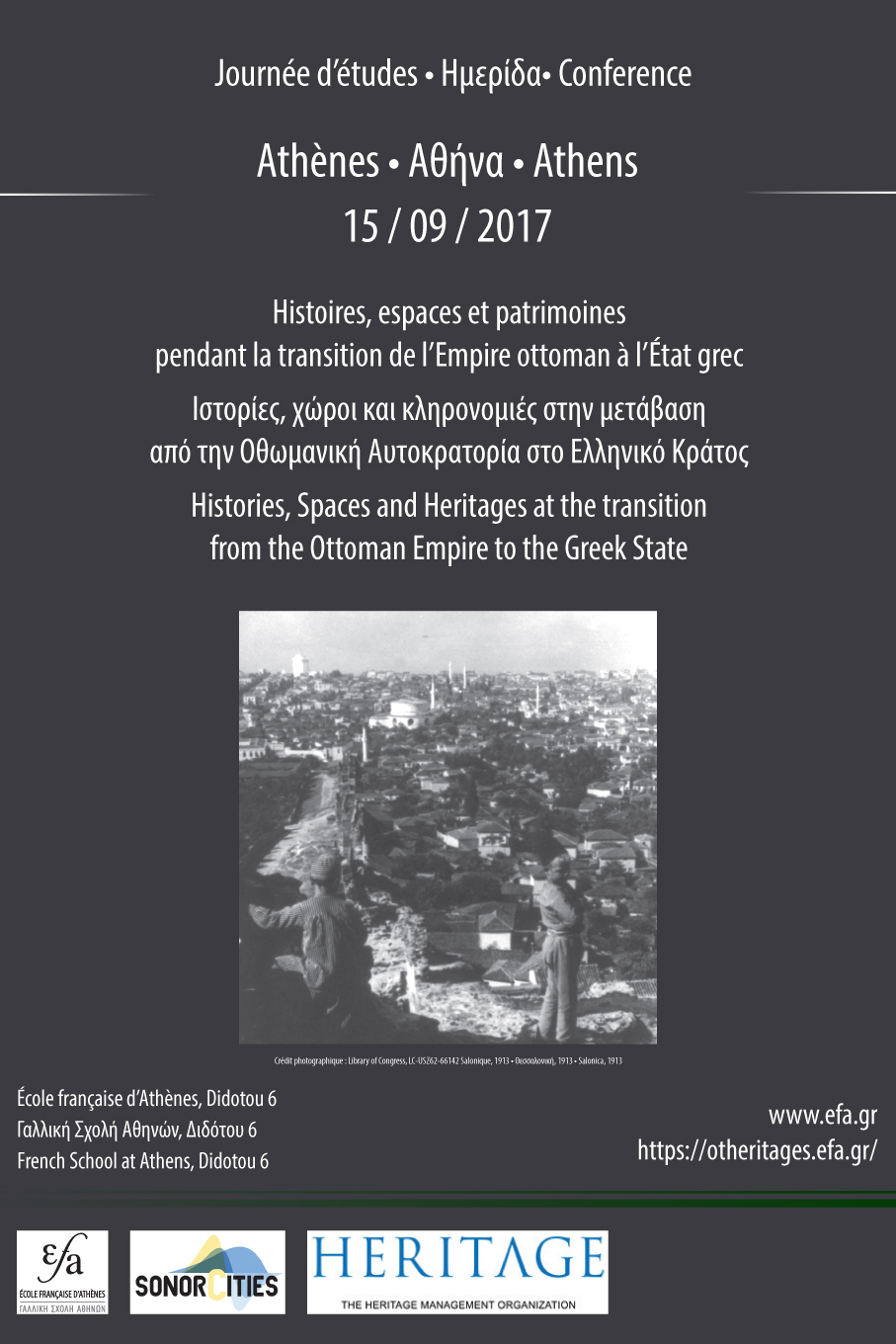
There is a strong emphasis on the sensory aspects of urban spaces that highlights the interplay between materiality and everyday experience at the end of the 19th century and the beginning of the 20th. The program aims to develop a methodological approach to studying the sensory history of Ottoman Heritage, especially as it develops within the contemporary politics of historical memory. To do so, the project brings together multiple research strands from an interdisciplinary perspective: scholars from cultural history, archaeology, urban studies, ethnomusicology and anthropology join forces to produce a multidisciplinary group that aims to interact with current trends in digital humanities. You can follow the project as it develops on the French School website: https://www.efa.gr/index.php/en/recherche/programmes-de-recherche-2/otheritages.
The conference wished to examine the current state of Ottoman Heritages as they are preserved and presented through policy and state institutions. The opening session focused precisely on that, with additional emphasis on the adoption of intangible heritage as a viable term in official policy. The second part of the discussion focused on critical approaches to Ottoman heritage and history, that aimed to problematize the definitions and assumptions on what constitutes Ottoman Heritage and history in the Aegean context. The afternoon session focused more strongly on particular histories of transition of urban spaces in Heraklio Crete, Nafplio and Thessaloniki. We were honoured to have professors Edhem Eldem and Eleni Bastea deliver the closing keynote speeches of this conference. At the end of the event, a group of students and teachers played music from the Jewish liturgical Maftirim tradition and the ritual of the Mevlevi sufi order https://www.youtube.com/watch?v=JzSHCrBXV-U&t=3750s. A fitting close to a full day of discussions and a significant beginning for our new research project.
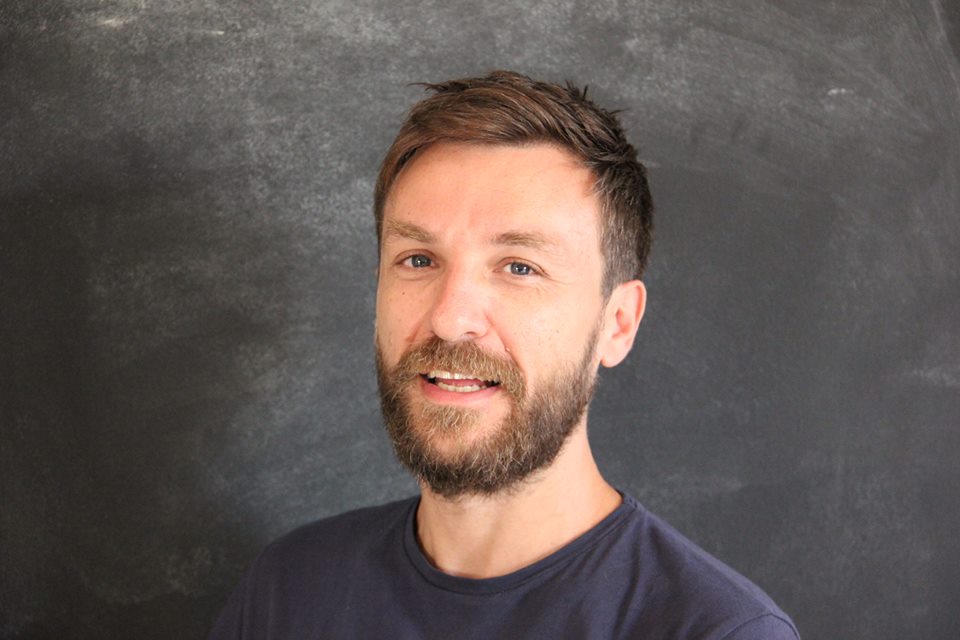
Honorary Lecturer
School of European Culture and Languages
University of Kent, Canterbury, UK
Discovering the Archaeologists of Africa
Written by Kenneth Aitchison,
Landward Research Ltd[1] & Heritage Management Organization[2] ( [email protected])

Archaeological remains in Africa are being damaged or destroyed without being adequately investigated, preserved, conserved or understood.
The reasons for this are rooted in a combination of global demand for minerals, rapid urbanization and the pressures of conflict and climate change, compounded by colonial histories, weak legislation, confused cultural attitudes to heritage and lack of investment in archaeological organisations.
We are now in a situation where “… sites that have been destroyed without having received any archaeological impact assessment prior to construction, vastly outnumber the ones that have been assessed and mitigated” (Arazi 2009, 97-98). Many sites are being looted with the ultimate resale value of stolen antiquities on the international art markets far exceeding the amount that is spent on systematic archaeological investigation (Ndoro 1997).
In the last two decades the sector has not kept pace with developing and ongoing threats to archaeological heritage from mineral extraction and infrastructure projects across the continent, together with the threats posed by conflict, looting, climate change and its economic consequences. Opportunities have been lost to create jobs, to add to knowledge and understanding, to stop looting and to protect African heritage for future generations.
The deeply rooted causes mean that these issues can’t be easily resolved, but a first step would be to ensure that people with the right skills, matched to needs, are working to address the pressures on archaeology.
There are Shortages of Professional Archaeologists in Many African Countries
The widely held, axiomatic, view is that there just aren’t enough archaeological experts in Africa to carry out the work needed in projects, both large and small, that are affecting African cultural heritage and landscapes.
And this view –– is relevant, and important, and true – but it is often anecdotal rather than evidence-based. The first step in building capacity is to measure current capacity, getting the evidence that can then be used to identify what is needed and then how to move towards supporting a sustainable workforce.
To protect heritage needs skilled, trained staff, and to set a baseline we first need to know how many archaeologists there are in Africa, and what their capabilities are.
Learning from previous work in Europe (the Discovering the Archaeologists of Europe project, where partners from 21 countries worked together to map professional archaeology in Europe, it would be possible to look at how many people work in archaeology across Africa (in all work situations – academia, private companies, governmental, NGOs), what they do, what their skills, qualifications, ages, genders and cultural backgrounds are, and how archaeology “operates” in each country.
Landward Research Ltd and the Heritage Management Organization are building up a network of partners in Africa who want to share methodologies and results to support African archaeology today and to plan for its development tomorrow, creating opportunities for employment, to contribute to knowledge and for heritage protection.
Knowing about the professionals who identify, interpret, curate and manage the physical remains of the human past allows those professionals to be supported, their needs to be identified and nurtured to lead to better heritage protection in the future.
The value in doing this is not just in counting archaeologists – it is in mapping out the current situation in order to then develop professional capacity that will better protect African cultural heritage. Archaeologists need to understand what is important, why it is important and to be able to explain and use it to tell a story that people will understand and value.
[1] Landward Research Ltd is a global labour market intelligence, skills development and monitoring & evaluation consultancy. We identify and deliver ways to measure and strengthen the skills, competencies and capabilities of individuals, organisations, professions and communities around the world. We have worked to undertake capacity measurement in professional archaeology for the European Commission, heritage agencies in the UK and the Society for American Archaeology.
[2] The Heritage Management Organization (HERITAGE) was established in November 2008 with the goal of enabling key heritage managers, through targeted training, to independently transform heritage assets from decaying objects of study to dynamic sources of learning, community identity and economic development.
The Heritage Management Organization trains professionals in the management of heritage sites, independently of project specifics. Training practitioners in the essential skills and best practices which define heritage management is at the heart of the HERITAGE mission.
 The Heritage Management Organization is delighted to announce that Dr Kenneth Aitchison is joining the Organization as Head of Capability Mapping.
The Heritage Management Organization is delighted to announce that Dr Kenneth Aitchison is joining the Organization as Head of Capability Mapping.
Kenneth is the Executive Director of Landward Research Ltd, and was formerly Head of Projects and Professional Development at the UK Chartered Institute for Archaeologists. He was awarded his PhD by the University of Edinburgh in 2012 for his work on three labour market intelligence projects (Profiling the Profession) studying professional archaeology in the UK which he led between 1997-98 and 2007-08. He has also led two pan-European Discovering the Archaeologists of Europe projects, with the Heritage Management Organization participating in the second of these.
He is now working to develop an HMO-led project looking at professional capabilities in archaeology in Africa, thinking about how to use this information to support capacity building for African archaeology. He presented a poster at HerMA 2017 and then spoke at the ICAHM conference in Tanzania, and is currently recruiting partners and participants for that initiative.
- 1
- 2

